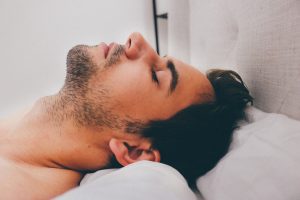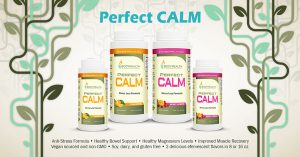 Do you have trouble sleeping? Find yourself tossing and turning throughout the night? Do you wake up in the middle of the night only to have difficulty falling back to sleep? There’s just no getting around the importance of sleep for runners.
Do you have trouble sleeping? Find yourself tossing and turning throughout the night? Do you wake up in the middle of the night only to have difficulty falling back to sleep? There’s just no getting around the importance of sleep for runners.
Unfortunately, many people could answer yes to one or more of those questions. Millions of people would be considered chronically sleep deprived which means they’re never fully rested. It also means they’re less alert on the job or other routine tasks they try to perform throughout the day.
As runners, we simply can’t afford to be sleep deprived. Without a doubt, quality sleep for runners is the most important recovery tool we can utilize.. And when I say “quality” sleep for runners, I’m talking about the deep REM (rapid eye movement) sleep that helps facilitate the recovery we need from all the mileage we demand from our bodies. As we enter into deep REM sleep, blood flow to the brain decreases and shifts toward muscles, giving both our minds and bodies time to rest & recover. The more REM sleep I get, the more refreshed I feel and ready for peak performance during the day. I notice a real difference in those first few steps out of bed after a great night of sleep.
Most of us who follow sports have heard the initials HGH which stands for human growth hormone. Unfortunately, many professional athletes over the years have illegally received HGH injections in order to improve athletic performance. But as we get into a deeper sleep, our bodies actually release HGH naturally. This natural hormone is released by the pituitary gland into the bloodstream which then helps rebuild damaged tissue and strengthens muscles.
When we’re in a chronic state of sleep deprivation, HGH production decreases and our bodies simply cannot recover properly after our workouts. In fact, too little sleep will lead to an increase in cortisol production-another hormone associated with responses to stress. Too much cortisol will slow our recovery time. Our bodies have an amazing ability to adapt when given proper rest. For example, after a hard session of repeats or a race, the body will tend to release more HGH in that night’s sleep in order to aid in the recovery effort. I also find myself going into more extended deep sleep after I’ve done a harder long run.
A Few Tips to Improve Sleep for Runners
1.) Reduce caffeine consumption
I know, this one is tough for many of us who love our caffeinated drinks. I would encourage you to make it a rule to keep all caffeine consumption before noon. Enjoy that 1-2 cups of coffee in the morning and switch to caffeine free drinks like tea in the afternoon. It may take a few days or even a week to notice the difference but eventually your body will thank you in the form of sleep as you reduce and strategically time the intake of this stimulant.
2.) Don’t run within 2 hours of heading to bed
When we exercise, we increase our heart rate. A higher than normal heart rate will prevent us from falling asleep very quickly. Getting your run in the morning or early afternoon is ideal. This allows your body the time it needs to return to a normal heart rate, especially after a harder workout when the HR goes higher. I’ve noticed a decreased quality of sleep after I’ve chosen to run shortly before going to bed.
3.) Limit evening alcohol consumption
Many people, runners included, have the nightly habit of winding down with a glass of wine or a good craft beer. And initially it’s true that we become more relaxed. But we pay the price in the early hours of the morning when we should be enjoying some deep sleep. When we consume alcohol shortly before we go to bed (especially more than 1 drink), our livers have to process that alcohol which will increase heart rate. Have you ever woken up in the middle of the night sweating after a heavier night of drinking? This is part of the body’s response to getting rid of the alcohol. It’s one of the reasons we toss and turn as we try to resume sleep. Simply put, consuming alcohol very late into the evening places more stress on the body and will affect sleep for runners. If you must have that pint of beer or glass of Merlot, finish it by 6pm to ensure a better night’s sleep.
4.) Natural sleeping aids
As someone who has typically had more difficulty falling asleep (unlike my wife), I’ve experimented with various natural sleeping aids. chamomile tea has been one of the ways I’ve enjoyed winding down before bedtime. Chamomile is a natural herb that people have been using for centuries to aid things like stomach relief and sleep. You’ll find several brands and varieties of chamomile tea in your local grocery stores.
Another natural sleep aid I’ve seen benefit from is a capsule called Power to Sleep PM by Irwin Naturals. This supplement contains things like magnesium and Valerian root which are well known for their calming effects on the body. I find that when I take the recommended dose of 2 capsules, I usually feel a tad groggy after waking in the morning. Taking 1 capsule seems to be just right, especially in conjunction with a cup of chamomile tea.
 Finally, a third supplement I’ve been taking in the evening that can improve sleep for runners is a brand new product by BodyHealth called Perfect Calm. The key ingredient in Perfect Calm is magnesium. It’s an incredible relaxation-enhancing supplement that helps restore healthy magnesium levels, provides calcium-magnesium balance, and supports the body’s natural response to stress. I’ve been doing 1 scoop in 6-8 ounces of warm water about 30 minutes before heading to bed and I’ve been pleased with the relaxing effect. As a runner, this is the kind of supplement you can immediately begin seeing results from.
Finally, a third supplement I’ve been taking in the evening that can improve sleep for runners is a brand new product by BodyHealth called Perfect Calm. The key ingredient in Perfect Calm is magnesium. It’s an incredible relaxation-enhancing supplement that helps restore healthy magnesium levels, provides calcium-magnesium balance, and supports the body’s natural response to stress. I’ve been doing 1 scoop in 6-8 ounces of warm water about 30 minutes before heading to bed and I’ve been pleased with the relaxing effect. As a runner, this is the kind of supplement you can immediately begin seeing results from.
The Issue
While almost half of the U.S. population takes calcium-containing supplements, most of the products do not contain anti-stress magnesium, which is a problem because magnesium, calcium, vitamin K2 and vitamin D all depend on each other to properly function. Although an estimated 80 percent of Americans are deficient in magnesium unless we’re subsisting on a diet mostly made up of dried seaweed and coriander leaf we’re not getting enough!
The Solution
Perfect Calm helps the body achieve calcium-magnesium balance. In addition to supporting the body’s healthy response to stress, magnesium supplementation can also benefit cardiovascular health, proper digestion and—along with calcium, vitamin K2, and vitamin D—bone health.
A 2015 systematic review of supplemental nutrients for tackling stress in women noted that low levels of magnesium negatively impact cognitive (brain) health and the ability to cope with stress effectively.
One serving of all-natural Perfect Calm provides nearly 90 percent of a full Recommended Daily Value for magnesium.
Ingredients
A highly absorbable blend of magnesium carbonate and citric acid—which, combined with water, creates magnesium citrate.
Perfect Calm comes in 8oz and 16oz sizes and in two delicious effervescent flavors – Tangerine and Berry Lemon.
Here’s a short video of Dr. David Minkoff, founder of BodyHealth, introducing Perfect Calm:
https://www.youtube.com/watch?v=4Wn-T6avjqs
Here’s to some sweet dreams ahead and great sleep for runners!
